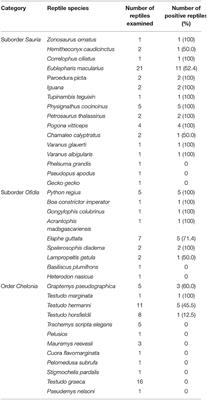ORIGINAL RESEARCH
Published on 06 Dec 2021
Serological Survey of Canine Vector-Borne Infections in North-Center Spain

doi 10.3389/fvets.2021.784331
- 6,789 views
- 9 citations
21k
Total downloads
222k
Total views and downloads
ORIGINAL RESEARCH
Published on 06 Dec 2021

EDITORIAL
Published on 25 Oct 2021
REVIEW
Published on 14 Jun 2021

ORIGINAL RESEARCH
Published on 26 Apr 2021

BRIEF RESEARCH REPORT
Published on 20 Apr 2021

ORIGINAL RESEARCH
Published on 26 Mar 2021

BRIEF RESEARCH REPORT
Published on 08 Mar 2021

BRIEF RESEARCH REPORT
Published on 25 Feb 2021
REVIEW
Published on 15 Jan 2021

ORIGINAL RESEARCH
Published on 06 Jan 2021

ORIGINAL RESEARCH
Published on 05 Nov 2020

BRIEF RESEARCH REPORT
Published on 15 Oct 2020
